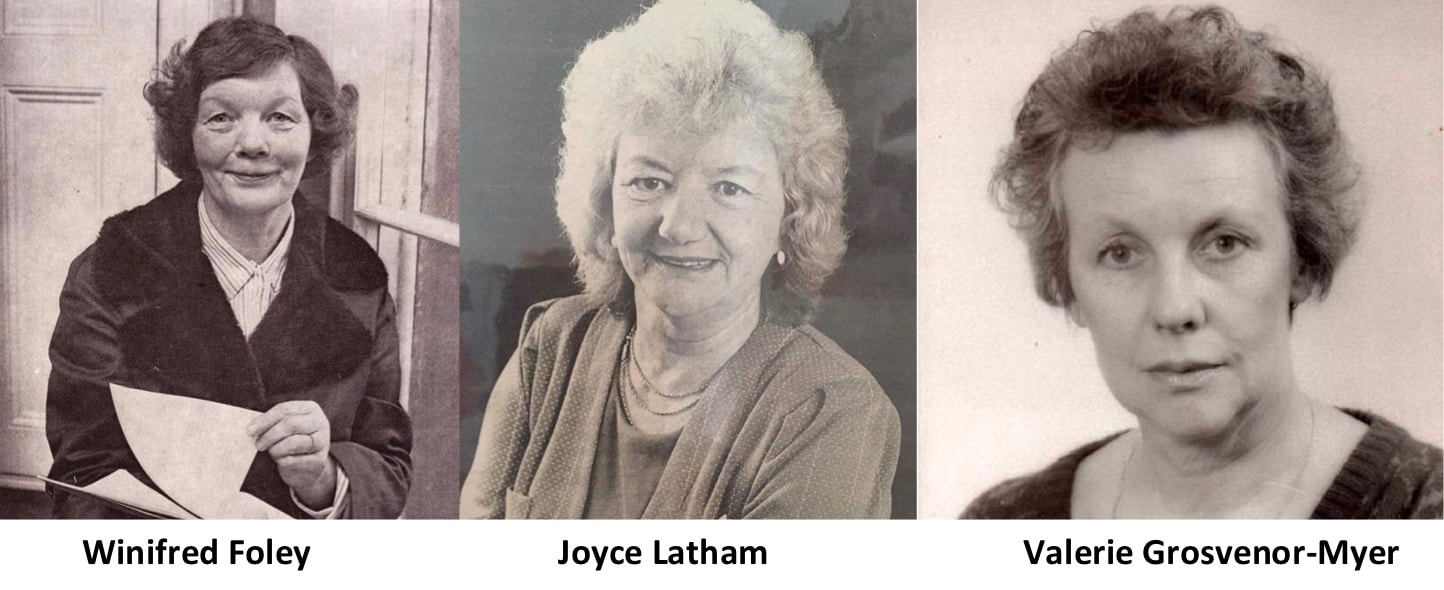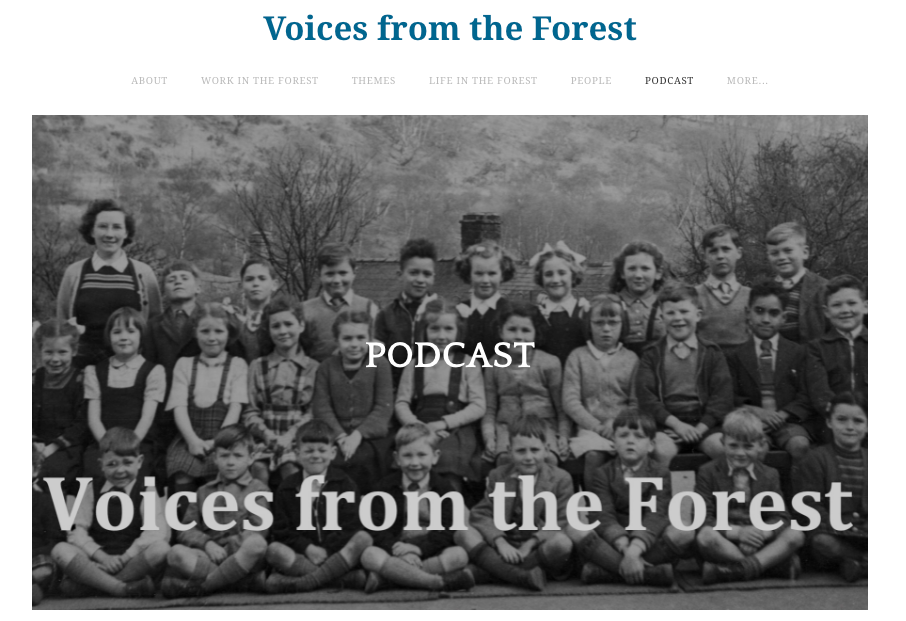|
For many of the Forest of Dean’s authors and poets writing was something that, by necessity, they fitted around - or at the end of - their working lives. This was doubly so for some of the Forest’s female writers who, as well as working, also ran the family home: Writing was something to squeeze in at the end of a busy day, or later in life once the children had left home. In the twentieth century the domestic and working lives of Forest women began to (slowly) improve, as we can see reflected in the writing and working lives of three female Forest authors.
For Winifred Foley, born into a working-class family in 1914, there were few options but to join the army of Forest women and girls who worked in ‘domestic service’. This was something Foley wrote about so brilliantly in her debut book A Child in the Forest (1974). By the time Joyce Latham, born in 1935, joined the world of work other opportunities had begun to open up. In her memoirs - Where I Belong(1993) and Whistling in the Dark (1994) - Joyce writes about jobs in local shops, and in factories. By the latter half of the century entry by women into traditionally male dominated careers - such as newspaper journalism - were a possibility. Valerie Godwin (later to become Valerie Grosvenor-Myer), also born in 1935, started her career in journalism by writing for the Dean Forest Mercury. She would go on to write for national newspapers and become a respected literary editor, critic, academic and author of several significant literary biographies. Valerie’s time working at the Mercury is just one of the many splendid recollections in the latest episode of the Voices from the Forest podcast series. Episode 4 focuses on the transformations in the working lives of women in the Forest of Dean during the latter half of the twentieth century. Several of the interviewees talk about their jobs in domestic service before World War Two, often starting as teenagers in jobs many miles from their family and friends. But during and after the War there was better access to education and improved opportunities as the Forest economy shifted from the older heavy industries to an increasing reliance on lighter, high value manufacturing and factory work. The podcast offers a fantastic insight into the working lives of Forest women and provides brilliant historical context in which to understand the work of some of the female Forest authors of the twentieth century. You can find the podcast on Spotify, Apple Podcasts and Anchor, or simply go the Voices in the Forest website’s Podcast page here (and click ‘play’ to listen).
0 Comments
Leave a Reply. |
Archives
June 2024
|


 RSS Feed
RSS Feed


